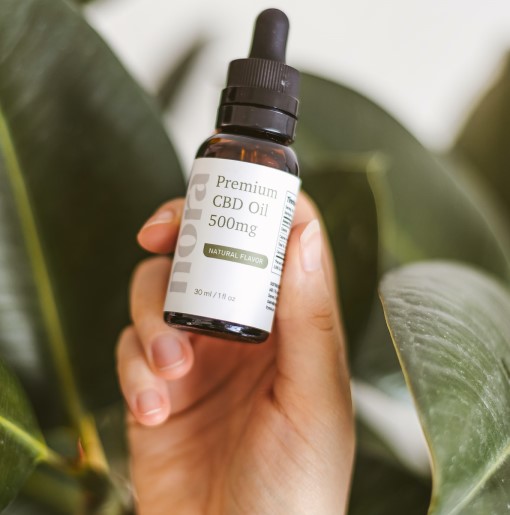
Can CBD really help with sleepwalking? – How it might and 8 other natural remedies worth a try
By Jason Wooden, PhD | August 20, 2022
Currently, there’s no direct evidence that CBD can be used to treat sleepwalking. However, research suggests that CBD and other natural remedies may be beneficial for managing underlying triggers such as stress, anxiety, and poor sleep.
Why CBD for sleepwalking?
If you’re curious whether CBD can help with sleepwalking, you’re likely not the first given the growing interest in natural remedies for sleep and other issues.
When it happens it can be pretty unsettling.
Sleepwalking is when someone walks or do other activities while not fully awake. Studies have found that it affects around 30% of kids 2 to 13 years old and 4% of adults.
The reasons people sleepwalk are not fully understood but some of the known risk factors and triggers are:
- Genetics
- Poor sleep
- Stress and anxiety
- Health issues such as fevers, asthma, or acid reflux
- Mental health challenges such as depression, panic attacks, and PTSD
- Alcohol
- Medications such as antidepressants, antipsychotics, and beta-blockers
Shuffling into a hallway is one thing but what about a family member who heads down to the kitchen and picks up dangerous objects?
Or someone who leaves the house?
Whether it’s a child or an adult, sleepwalking can a be a serious issue because they may unknowingly harm themselves and others.
So, why CBD?
It’s natural and is being look a for a wide range of health benefits including anxiety and mood disorders, pain relief, and managing symptoms of neurological disorders such as Parkinson’s disease.
Can CBD really help with sleepwalking?
We’re going to take a look at what we know, your options, and then you can decide what’s best for you.
How CBD affects your body and sleep
The way CBD could help sleepwalking would be through it’s effects on the brain.
CBD, short for cannabidiol, is one of the better known actives along with THC derived from the cannabis plant. Even though both are cannabinoids, they interact with the brain in slightly different ways.
THC is the main psychoactive compound that gives people a “high”. CBD is made from hemp, a type of cannabis plant that contains very low levels of THC.

CBD and other cannabinoids interact with proteins on the cells in the brain called cannabinoid receptors.
These receptors are part of the endocannabinoid system, a complex signaling system in the body that has been linked to appetite, mood, stress, learning and memory, inflammation, and pain.
Evidence is growing that the endocannabinoid system is also involved with regulating circadian rhythms and the sleep-wake cycle too.
Early research suggests that cannabinoids may be beneficial for insomnia and other sleep disorders such as restless leg syndrome and sleep apnea.
So, it’s not so crazy that CBD might be beneficial for sleepwalking.
Can CBD help with sleepwalking?
Now, we finally get to what you really want to know, whether CBD can really help sleep walking.
Unfortunately, there’s currently no direct evidence that CBD can be used to treat sleepwalking. In fact, there aren’t any published case reports or anecdotal accounts such as in online forums.
I’m not surprised since research on CBD and it health benefits is still ramping up.
However, there is evidence that CBD may help sleepwalking indirectly. It may be beneficial for managing underlying triggers and insomnia symptoms:
Poor sleep
There’s growing evidence that CBD can help with insomnia.
Stress and Anxiety
Besides being a common challenge to sleep, stress and anxiety are known triggers for sleepwalking. CBD has been found to be helpful for anxiety in clinical studies.
Depression and other mental health challenges
People dealing with challenges such as depression, neurological disorders, obsessive-compulsive disorder, panic attacks, and posttraumatic stress disorder have been found to be more at risk for sleepwalking.
Limited studies suggest that CBD may benefit depression and other mental health challenges.
In summary, while there’s currently no direct evidence that CBD can be used to treat sleepwalking, it may help with managing some of the underlying causes and symptoms in sleepwalkers.
Does CBD help with night terrors?
It’s no surprise if you’re curious about this night terrors are often paired with sleepwalking. In fact, they’re related disorders that share common triggers including sleep deprivation, noise, fever, stress, and certain medications.
With night terrors, individuals experience episodes of intense fear, screaming, and body movement while still asleep. It’s believed to affects as many as 40% of kids and a small percentage of adults.
In various online forums, you’ll find discussion threads in which individuals sharing how CBD oil has helped their night terrors.
Currently, like sleepwalking, there is no direct evidence that CBD can be used as a treatment. This doesn’t mean CBD can’t help night terrors, just that we won’t know the answer until the right studies are done.
However, it is possible that CBD may help with managing underlying triggers for night terrors such as stress, anxiety, and sleep deprivation.
Practical tips for trying out CBD for sleepwalking

1) It’s a good idea to check with a doctor
It should be clear by now that there’s still a lot of research to be done on the benefits of CBD for specific issues such as sleepwalking.
Also, keep in mind that natural actives such as CBD haven’t been as well-researched as pharmaceuticals. Consequently, there’s less known about side effects and possible interactions with other substances such as medications.
So, if you decide to give CBD a try for sleepwalking, it’s a good idea to see a doctor first, especially if you’re dealing specific health challenges and taking other medications.
An alternative medicine practitioner such as an herbalist or naturopathic physician can also advise you on dosing, safety issues, and the best way to use it.
Useful links:
CBD: What Parents Need to Know
CBD products are everywhere. But do they work? (Harvard Health Publishing)

2) Get your CBD from a good source
There are plenty of places you can get your CBD from, some good and some not so good.
Unfortunately, the CBD industry is growing like crazy and there’s currently a bit of the wild west out there. It’s hard to know with some CBD products how pure it is and how much CBD you’re actually getting in a dose.
Some things to look for are:
- A well-known and reputable company with minimal complaints
- 3rd party testing done to verify CBD amounts and purity
- A certificate of analysis which you can review
If you’re looking for options, here’s a high quality CBD oil provider I review here.

3) Seeing a doctor can help you in other ways too…
I’ve already mentioned how a wide variety of health issues and medications have been linked to sleepwalking. A doctor can check for these underlying risk factors and help you figure out what you can do about them.
They may refer you to a sleep specialist which can assess you for underlying sleep disorders. In some cases, they may prescribe specific medications, especially if there are significant safety risks or serious family disruption
Other natural remedies besides CBD that can help sleepwalking
If you’re curious whether there are other “natural” things you can do beside CBD for sleepwalking, the good news is that there are plenty of alternatives you can try. Some are simple changes you can make right away while others may require an investment of time or money
Depending on your situation and specific issues, your options include:
1) Getting regular sleep
It’s important you’re getting the best possible sleep you can every night since being overtired is a known sleepwalking trigger.
Start with the basics, sleep hygiene. It’s the everyday things you do that can set the stage for quality sleep.
For better sleep hygiene, you should:
- keep consistent wake up & sleep times
- avoid naps
- exercise during the day
- avoid large meals, alcohol, or stimulants such as caffeine before bedtime
- maintain a regular bedtime routine
- avoid using TVs, laptops, or other electronics before sleep
- keep your bedroom dark, cool, quiet, & relaxing
2) Stress management
Getting overstressed is another know trigger for sleepwalking. Stress and anxiety is also a common cause for insomnia.
There’s lots you can do to help manage stress – lifestyle changes and exercise. Getting more regular sleep will also help.
3) Relaxation exercises
Speaking of stress, relaxation exercises may help with sleepwalking. There’s meditation, deep breathing, visualization, and various other techniques worth a try.
Learn more:
Six relaxation techniques to reduce stress (Harvard Health Publishing)
Relaxation Techniques for Stress Relief (Helpguide.org)
4) Natural relaxation aids
There’s growing evidence that some natural actives can be beneficial for stress, anxiety, and depression. Among the better known ones are lavender essential oils, valerian root, St. John’s wort, and turmeric.
5) Avoid alcohol
Another known trigger, it should be consumed earlier in the day instead of in the evening. Another reason to avoid alcohol at night is that it can also cause your sleep to be more shallow and less restful.
6) Anticipatory awakening
This involves waking up someone about 15 minutes before they usually sleepwalk. The person then stays awake for a few minutes before falling asleep again.
7) Sleepwalking prevention devices
Your choices include gates, safety door locks, bedroom door alarms, motion sensors, and mats that work as a floor alarm.
If you’re looking for specific options, here’s a list of devices you can get online.
Learn more:
5 sleepwalking prevention devices worth a try
8) Counseling
A mental health professional such as a psychotherapist can help you figure out how to lower stress and anxiety that’s triggering sleepwalking.
You may also be interested in:
Useful sleepwalking aids and prevention devices
Can sleeping pills help with sleepwalking?
Can stress cause you to sleepwalk?
Is sleepwalking a sign of something more serious
Can IBS cause you to sleepwalk?
Can prescription meds cause sleepwalking? – 8 remedies
Sleepwalking prevention devices: 5 things to try for easier nights
Turmeric and other natural relaxation aids
Can CBD oil make you feel more awake and cause insomnia?
Can CBD worsen IBS and insomnia?
Can you take CBD oil with sleeping pills?
4 things to try if CBD is keeping your dog awake
Sources:
1. “Sleepwalking”, MedlinePlus
2. Sleepwalking: What is Somnambulism?, 2022, sleepfoundation.org
3. CBD Oil — Are the Benefits Claimed Too Good To Be True?, 2021, Cleveland Clinic
4. A comparison of CBD and THC, 2022, MedicalNewsToday
5. Cannabinoid Receptors and the Endocannabinoid System: Signaling and Function in the Central Nervous System. Int J Mol Sci. 2018 Mar; 19(3): 833.
6. CBD: For Sleep and Insomnia, American Sleep Association
7. Effects of Cannabinoids on Sleep and their Therapeutic Potential for Sleep Disorders. Neurotherapeutics. 2021 Jan; 18(1): 217–227.
8. Cannabis, Cannabinoids, and Sleep: a Review of the Literature. Curr Psychiatry Rep. 2017 Apr;19(4):23.
9. Cannabidiol: A Potential New Alternative for the Treatment of Anxiety, Depression, and Psychotic Disorders. Biomolecules. 2020 Nov; 10(11): 1575.
10. Sleepwalking More Likely With Several Psychiatric Disorders, 2012, Psychiatry Online
11. Cannabidiol Induces Rapid and Sustained Antidepressant-Like Effects Through Increased BDNF Signaling and Synaptogenesis in the Prefrontal Cortex. Molecular Neurobiology volume 56, pages1070–1081 (2019)
12. Can CBD help treat depression?, 2019, MedicalNewsToday
13. Sleep terrors (night terrors), MayoClinic.org
14. Sleep Terrors and Sleepwalking: Common Parasomnias of Childhood. JAMA Pediatr. 2015;169(7):704.
15. Sleepwalk (Somnambulism), 2021, eMedicineHealth
Connect with us:
About Us
Better Sleep Simplified® was founded as a place for you to get clear and well-researched information.
Our goal is to make sure you know about your options so that you take action sooner rather than later.
Check us out on YouTube:
Watch and Learn
Helpful sleep tips, interesting sleep facts and statistics you want to know about
Affiliate Disclosure
This site is a participant in the Amazon Services LLC Associates Program and other affiliate advertising programs designed to provide a means for sites to earn advertising fees by advertising and linking to them.
Important: BetterSleepSimplified.com is for informational purposes only and is not intended or implied to be a substitute for professional medical advice, diagnosis, or treatment. Always consult a physician for sleep and health concerns. See additional information.
